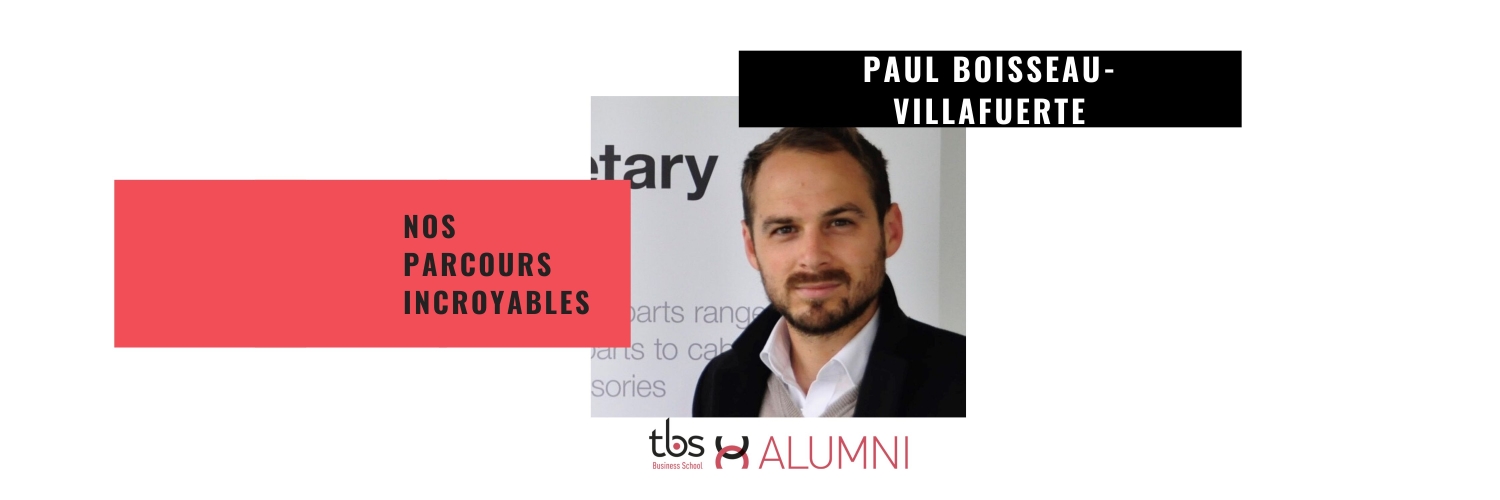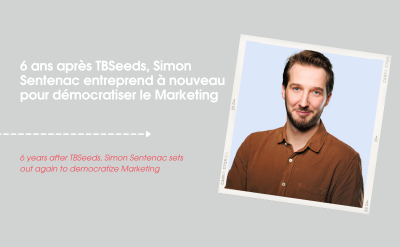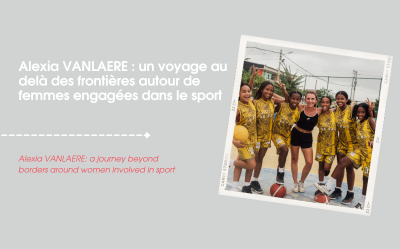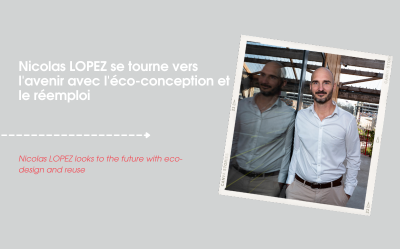News

Our Incredible Life Journeys - Paul BOISSEAU-VILLAFUERTE (TBS 2012)
« The greatest assets provided by TBS are the soft skills we learn through the many layers of the school's social fabric ».
Paul, currently Product Manager (PM) in the aftermarket for Airbus Commercial Aircraft, is co-facilator in Hambourg Chapter
Please say a few words about yourself?
Why did you choose to go to Toulouse, and TBS, to study?
I wanted to make the most rational choice possible. Beyond the obvious charm of Toulouse, I firmly believed in the potential had from attending a business school in the fourth largest city in France. For me, it would only be a benefit to attend a rich and powerful business school in a city that was experiencing an economic, and which could only increase its performance in the future. I had been accepted to other Top 10 schools (Neoma, Kedge...) but TBS had a good momentum and was challenging the higher ranks. It came in 6th during the two years I was in prep classes, so I went for the winning combination: performance and a relaxed way of life! I know that the school always had the potential to reach its rightful place and become one of the Top 30 in Europe. There is a clear correlation between the school's performance, the pride of its Alumni, and their willingness to invest in it.
Would you tell us about your time as a student at TBS?
I did a specialisation in marketing with a professional option in B2B, which was the perfect "fit" for my goal of having a career developing technical products for major industrial companies.
Do you have any stories from your year to share with us? (student associations, projects, professors…)
I experienced the classic post-prep school syndrome as soon as I got there. After all the heavy coursework I had had, I joined associations to feed my social life, including the BDE and the "Petit Tou" (the “city of the pink city”). A little anecdote - I met the woman of my life who was studying at TSM at the time through friends from these two associations!
Who are you today?
What were your mane objectives when you started work after your degree? What were your motivations?
My internships at major companies (Lafarge, GE, Saint-Gobain) had reinforced my desire to work in international sales for French industrial companies. More precisely, I wanted to combine this desire with my dream of getting a job in Latin America. I was fairly impatient at the end of TBS before I got a position as Key Account Manager (KAM) with Airbus Helicopters, first in Chile, then in Uruguay! The product - the helicopter - immediately fascinated me for its level of technical complexity and its beauty of the product.
What are you currently doing?
I’m currently Product Manager in the aftermarket sales department for Airbus Commercial Aircraft, at Satair in Hamburg. More specifically, I'm in the spare parts business. In a few weeks, I’ll be changing jobs and be the Lead A320 FAL Customer Manager, aka Aircraft Delivery Manager.
Why did you choose this profession, this job?
Looking back, I am convinced that there’s a link between the fascination I’ve developed with helicopters and planes, and the passion I’ve had for Star Wars since I was a child. The two fundamental elements for me are managing a product that impresses me on a daily basis in a high-tech company and customer contact. After spending almost four years working closely in the field with both the product and customers as key account manager, I wanted to be a project manager. It’s a more strategic function and combines Marketing, forecasting, and Profit & Loss control. So, I went from being in essentially a “firefighting” position (sales manager) to a position that requires a global vision in the medium and long term. I now see the forest instead of just a few trees. What I find fantastic about this job is that I’m not an engineer by training, but I’m immersed in the highly technical world of aeronautics anyway. I’m learning on the ground but, at the same, I’ve taken many engineering courses that are indispensable to understanding my work environment. I took the courses to complement my academic and professional experiences in business and management with theoretical knowledge. In this case, aeronautical technical skills. We have to keep trying and most of all dispel the myth that, because we do not have a master in Aerospace Engineering, it’d be impossible to work in the field. However, it is necessary to be curious and to constantly learn so that you can fill in the gaps.
At what point did you know that this career was made for you?
In 2017, when I took a break and left after four years at Airbus Helicopters to do an Executive MSc in Public Administration at the London School of Economics. Although I was thinking about applying for a job at the United Nations, I missed my job and wanted to return to Airbus!
How did you get to where you are today in your career? (The milestones to be taken into account.)
Dominique Andreani (another Alumni!) immediately comes to mind. He was sales manager at the Chilean subsidiary of Airbus at the time. He reached out to me, recruited me, and entrusted me with taking over the Support & Services accounts, first in Bolivia and Peru, and then later in Panama. It was my first job! This international position was an important step because it confirmed that I wanted to work abroad for a French company and gave me an international business profile. Subsequently, the transformational leadership of my mentor, Pierre Marie Goût, inspired me in terms of work value: being "fair and respectful at work and having a winning spirit ". My experience at LSE broadened my horizons in political science and also developed my international profile. My move to Germany was also essential to my professional and personal development. I learned a fourth language so I could speak my wife's mother tongue. I also understood the world better, discovered new nuances and a new palette of colours of the world, had a good cultural shock and a totally different perspective!
How did your studies help you reach your personal and / or professional achievements?
The greatest contribution TBS provides is the soft skills learned through its many social associations, which are essential to developing the ability to adapt to any challenge! These crucial skills are exactly what makes it possible to evolve in a technical environment like mine with confidence and without self-censorship.
Where do you see yourself in ten years time?
Working in sales for a subsidiary of Airbus in Latin America… or perhaps in Mexico!
How are you involved with the Alumni network?
How has the Alumni network been a support to you?
I started working with the Alumni network in Santiago de Chile in 2013 with a mixed group of 15 Franco-Chileans! It was a great way to build up my social circle in a new country! Since then, I’ve been working in Hamburg with about thirty Franco-Germans. Among other things, we want to build the reputation and attractiveness of TBS (particularly the Aerospace cluster) in this city, which is the third-largest in the world in terms of commercial aviation after Toulouse and Seattle. In order to accomplish this, we know we can count on the talents of Dr. Christophe Benaroya, the Aerospace MBA Director, with whom I stay in contact, as well as Florence Ramillon who makes the school shine and the many international partnerships of excellence that she develops.
How would you recommend using it?
If you are interested in international business, don’t hesitate to contact those Alumni who based abroad to ask them for advice. They’ll reach out to you and be a source of inspiration for you to take spread your wings.
What advice would you give to the Alumni of TBS, whether students or graduates?
Treat others the way you want to be treated, and remain humble in the face of any challenge.
Finally, are your willing for Alumni to contact you directly if they are interested in your career path?
Yes.















No comment
Log in to post comment. Log in.